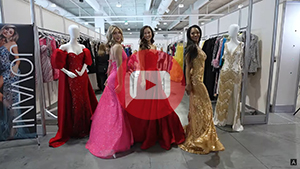Polo Suit May Have Ripple Effects
With a widespread impact on the retail industry a potential result, fashion giant Polo Ralph Lauren has been targeted in a recently filed lawsuit over its uniform policy.
The suit, which seeks class-action status, charges that sales staff at Polo’s stores must buy the company’s clothing to promote its brand image—what is known as wardrobing in the trade—with the cost of clothing even being deducted from employee paychecks as “payroll advances” for those unable to afford the fashions.
That practice violates California laws requiring employers to pay for “distinctive” uniforms employees must wear on the job.
“Certainly, Polo has built an enterprise of distinctive clothes, but it’s at the expense of its employees,” said Patrick Kitchin, one of the attorneys handling the case.
Along with named plaintiff Toni Young, a current Polo employee in San Francisco, Kitchin anticipates adding a dozen class representatives in the next month. He hopes to extend the five-year statutory period based on discussions with another former Polo employee who claims to have alerted management to the company’s violation at least two years ago.
Young, who works in the store’s Collection department, estimates that she has spent more than $35,000 on high-end Polo clothing and accessories since joining the company in 1997—even with her 65 percent discount.
On the company’s couture Web site, www.runway.polo.com, clothing costs range from $595 for cargo pants to $10,000 for a beaded gown.
A spokesperson for Polo said the company doesn’t comment on pending litigation.
This is not the first time such a suit has arisen. Dean Fryer, a spokesman for California’s State Labor Commissioner, said the state won a suit about two years ago against Target Corp., which had required employees to purchase a specific red T-shirt. Affected employees received about $750,000 in compensation.
More cases are in the pipeline, Fryer said.
“We’re pursuing other investigations that address the requirement of purchase of brand-name clothing as a uniform,” said Fryer, who wouldn’t comment on the names of the retailers involved.
For some upscale retailers, the suit’s outcome may affect future business strategies, say industry experts.
“There’s going to be a ripple effect and concern for high-end retailers, who will take a wait-and-see attitude and then reassess the situation,” said Mark Brutzkus, a labor attorney in Los Angeles.
Giorgio Armani provides uniforms to its employees at no charge, according to a spokesperson for the New York-based fashion house.
Los Angeles-based BCBG Max Azria, which has about 60 stores nationwide, including 18 in California, does not require employees to wear its clothing, according to Tara Hannert, the company’s director of public relations.
“Usually, they’re only too happy to wear the clothing, and that’s more of an asset to us,” Hannert said. “It shows they take the job seriously.”
The Polo suit, filed in San Francisco last month, asks the court to order a halt to the company’s wardrobe requirements, restitution for all employees who purchased Polo clothing under the policy and punitive damages. —Nola Sarkisian-Miller





















